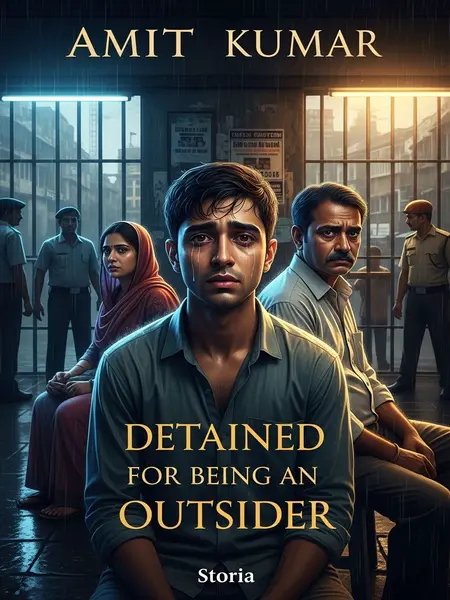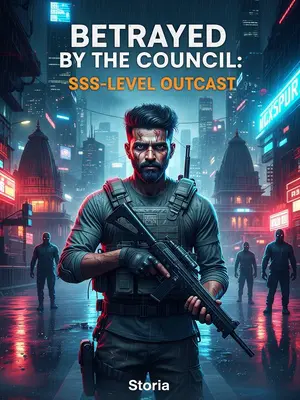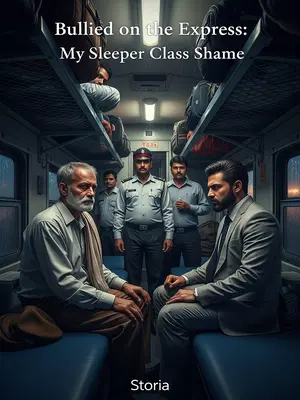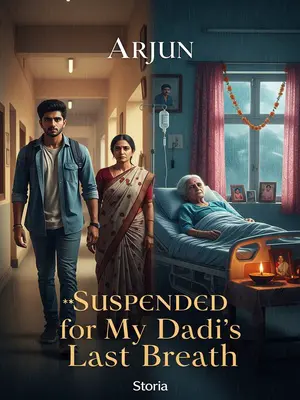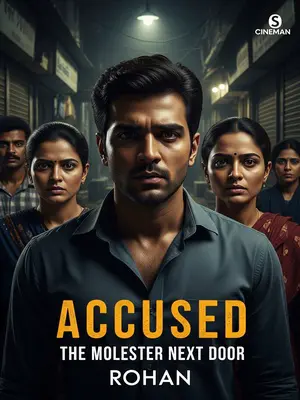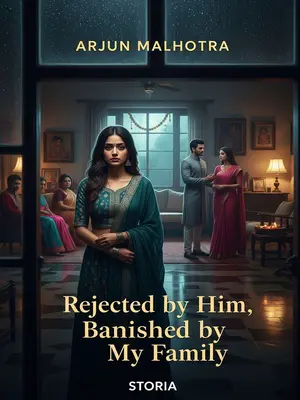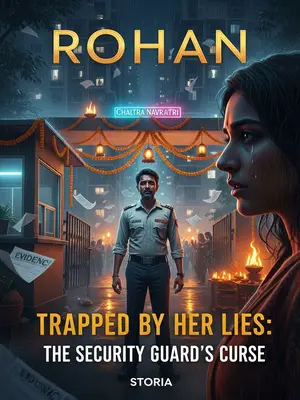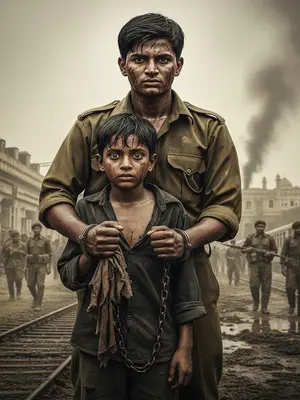Chapter 1: The Call That Changed Everything
A person with a steady job, a proper residence, and an Aadhaar card—still, he was taken to the police station for not having a temporary tenant registration. In those days, this was a silent truth in many Indian cities. Everyone knew someone, or had heard stories at the chai tapri, of the police picking up those who looked like they “didn’t belong.” Aadhaar card, naukri, sab kuch hone ke baad bhi, proof of being a decent citizen was always in doubt. Old-timers would sip tea, shake their heads, and mutter, “Yahan sab kuch possible hai, bhai.”
Back then, this was called ‘detention and repatriation.’ People used the phrase with a weary shrug, as if it was just another dukh to survive. You could be uprooted any time, no matter how many years you’d made a city your home—cooking dal-chawal on a single-burner, sending money to your parents in the gaon. It was the invisible wall between being local and always an outsider.
But this time, the cost was a college student’s life. Three days after being detained, Amit Kumar died in hospital. The detention centre called it ‘sudden death.’
It wasn’t the first time someone had vanished into the system, but such tragedies rarely surfaced. Usually, there were whispers, a small mention in the local paper, and life moved on. But this time, the injustice pricked the nation’s conscience. The words ‘sudden death’ sounded like a cruel joke to those who’d seen the bruised bodies and tired faces leaving those centres.
His death shook a country awake.
News channels ran endless tickers. WhatsApp groups buzzed with videos and forwarded news. Even the chaatwala at the corner paused, wiping his hands, and said, “Bas, ab kuch toh badalna chahiye.”
1
On 20 March 2003, Ramesh Kumar got a phone call at his home in Rajpur, Haryana, from a female classmate of his eldest son, Amit Kumar.
The day had hardly started. Outside, milkmen’s cycles clattered down the lane. The landline rang—a sound that always made Ramesh’s heart skip. He picked up, expecting a cousin or a call about the fields. Instead, he heard a girl’s trembling voice, heavy with fear, not the usual cheerful greeting.
“Uncle, something has happened to Amit in Mumbai. For some reason, he was taken away by the police and then sent to the detention centre. Now he’s in hospital. You should come quickly.”
Her words hung in the air, heavy and unreal, like winter fog over the fields. Ramesh pressed the receiver harder to his ear, hoping for a correction. Her tone—so formal, so frightened—made his dread grow. Behind her, he caught the sound of muffled sobs and urgent whispers.
She hesitated, voice breaking, before finally saying, “Uncle, Amit is dead.”
A silence heavier than stone followed. Even the ceiling fan seemed to stop. A hollow ache spread through Ramesh’s chest. His hands shook; the receiver nearly slipped from his grip. For several seconds, he stood frozen, mind refusing to accept the words. Dead, dead, dead—her voice echoed in his skull.
Ramesh Kumar couldn’t believe it, but he couldn’t ignore it. He hid the news from his wife, rushed to Delhi by taxi, and met his younger son Ravi, who worked there. Along with Amit’s uncles—five or six in all—they boarded the night train to Mumbai.
He paused by the kitchen, watching his wife pour chai, her back straight and hopeful. He almost told her everything, but the words stuck in his throat. Instead, he mumbled something about a friend’s illness in Delhi. The journey to the station felt like a bad dream. He clutched his battered suitcase—packed in a hurry with a spare kurta, some cash, a pouch with sacred threads, and a photo of Amit from school. Ravi looked equally shaken, holding back tears for his father’s sake. Relatives arrived with hurried condolences, some bringing steel dabbas of paratha and pickle. The night train’s whistle sounded especially mournful as they boarded, platform lights flickering in the haze.
On the train, Ramesh wept without stopping. The railway police, seeing his state, asked, “Arrey bhai, kya hua? Agar sach mein kuch hota toh police khud batate. Kaise ho sakta hai ki classmate ne pehle bata diya?”
Other passengers listened, some nodding with sympathy, others shrugging: “Aise toh hota rehta hai.” The constable, moustache bristling, tried to reassure him. “Chinta mat karo, uncle. Police waale aise nahi karte. Sab galat fahmi hai.” But Ramesh could not be soothed. Every jolt of the train made his heart pound. He wiped his tears with a crumpled hanky, staring out at the darkness. Relatives tried to talk of harvests and weddings, but nothing could touch his grief. One of the uncles pulled out a steel dabba of aloo paratha, insisting Ramesh eat, but he could barely swallow.
By dawn, they reached Mumbai. Several of Amit’s classmates met them at the station and took them straight to the crematorium. Along the way, everyone was crying, the truth sinking in with every kilometre.
Mumbai’s heavy air pressed down as they left the train, sweat trickling down their backs. The city was a blur of honking rickshaws, shouting porters, and distant glass towers—so far from Rajpur’s slow mornings. The classmates’ eyes were red and swollen. No one could meet Ramesh’s gaze for long. In the taxi to the crematorium, no one spoke—only muffled sobs and the sound of grief. Even the taxi driver kept glancing in the mirror, unsure whether to offer condolences or stay silent.
At the crematorium, Ramesh saw Amit’s body, covered with a white sheet.
The sheet was thin—so thin that Ramesh could see the outline of his son’s face beneath it. He stood at the entrance, feet refusing to move forward. The air was thick with the scent of incense and the sharp tang of antiseptic. A stray dog wandered near the gate, and incense sticks burned low, their smoke curling into the muggy Mumbai air. An old man chanted prayers in a corner, but Ramesh heard nothing except his own racing heartbeat. All those years of struggle, the dreams, the sacrifices—had they all led to this?
Amit was truly gone.
He sat down heavily on the floor beside the body, pressing his forehead to the cold stone, as if hoping to wake his son with a father’s touch. His hand trembled as it moved over the cloth. It was cold—chillingly final. The reality crashed over him—no more phone calls, no more laughter, no homecoming at Diwali. He thought of his wife, still at home, making tea and cursing Mumbai for taking her son so far away, not knowing.
Such a major event—the death of a young man—yet not a single official had told the family what happened. Instead, the crematorium staff urged them to perform the last rites quickly, saying the body could not be kept any longer.
The staff, faces lined from years of witnessing grief, spoke in hurried, practised tones. “Dekhiye sahib, jaldi kijiye. Hum body zyada der rakh nahi sakte. Bahut rules hain.” Their words were brisk, not cruel—just tired. Ramesh’s brother, anger rising, wanted to shout, but only clenched his fists. The bureaucracy moved like a machine—forms here, signatures there, lists to check, but never a word of comfort.
All they received was a brief statement: sudden death, cerebrovascular accident, sudden heart disease.
The paper looked almost absurdly small in Ramesh’s rough hands. Stamped and official, it contained only a line—a line that explained nothing. Relatives crowded around, reading and rereading, as if the words might change. Ramesh wondered if he’d fallen into some cruel dream. How could a healthy young man simply die of a heart attack?
The family knew it was a lie. Amit had always been healthy, never once complained of heart trouble.
Back in Rajpur, neighbours often joked that Amit, always running, always playing football, was the last person to fall sick. Even in Mumbai, his friends teased him for walking everywhere. The suggestion of sudden heart disease was an insult—a final injustice. Ramesh’s sister-in-law whispered a prayer, pressing fingers to her temples, warding off buri nazar.
Even worse, Ramesh saw bruises on Amit’s body at the crematorium. He was sure there was some shameful secret behind his son’s death.
He lifted the sheet just enough to glimpse Amit’s arms and torso. The bruises were dark—some fresh, some turning yellow. His vision blurred, and he pressed his fist to his mouth to keep from crying out. Anger and grief mixed, making his stomach churn. “Kuch toh chhupa rahe hain yeh log,” he muttered. His brother squeezed his shoulder, both men silently vowing not to let this go. Everyone felt the same—the system was hiding something.
With no answers, Ramesh refused to allow the cremation. Later, he would be grateful—this was the wisest decision he’d ever made.
When staff insisted, Ramesh stood his ground. “Nahin, jab tak sach samne nahi aata, kuch nahi hoga.” His voice was steady, surprising even himself. For the first time, the staff looked unsure. Relatives nodded in support. Later, Ramesh would remember this as the moment he reclaimed some control—refusing to let Amit’s death become just another statistic. The family kept vigil, flasks of tea and packets of glucose biscuits at their side, refusing to leave Amit alone.
